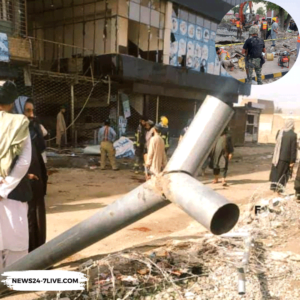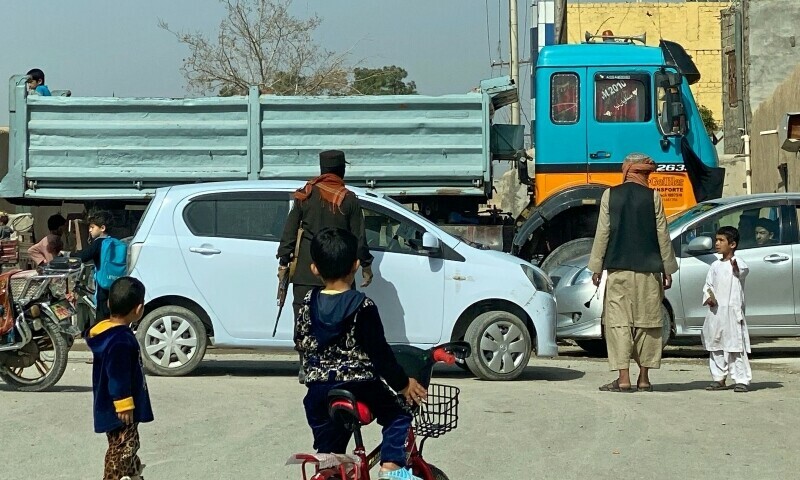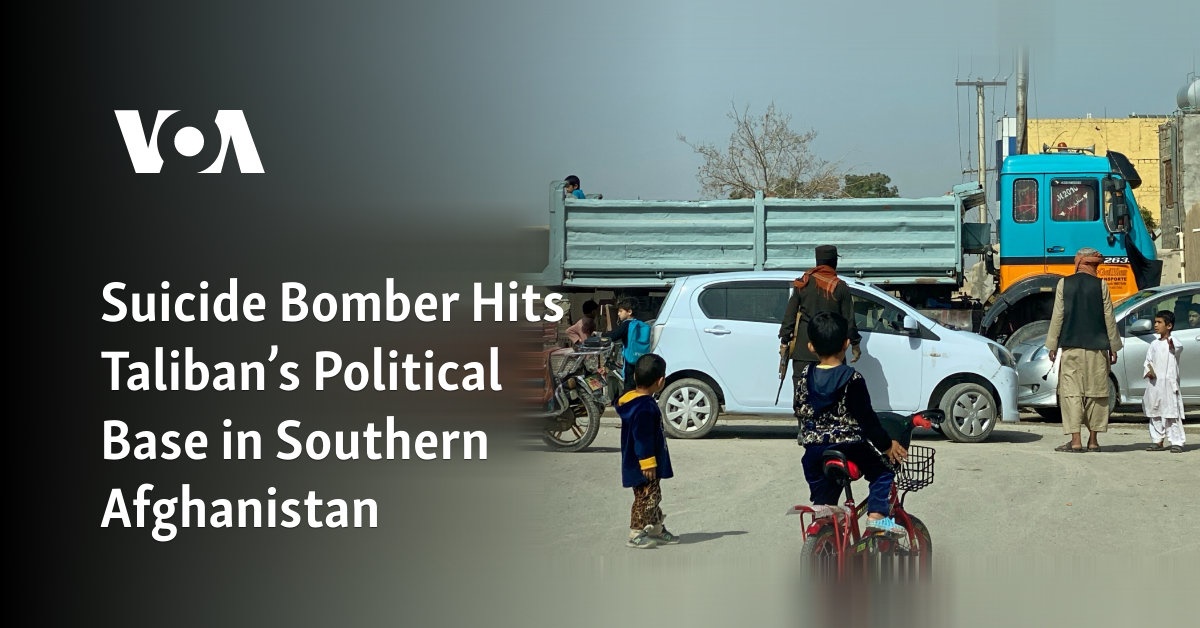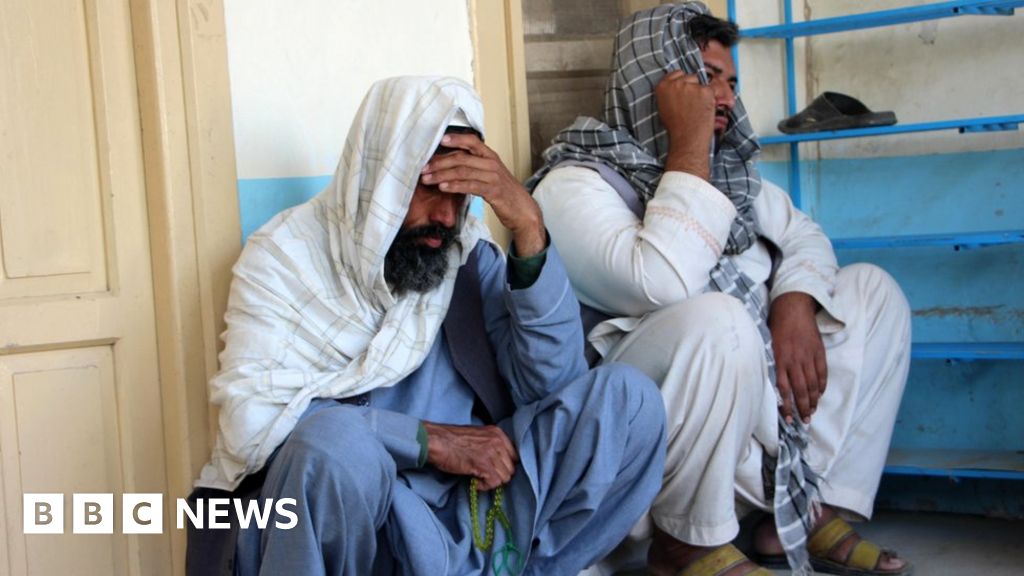In Kandahar, Afghanistan, a suicide bombing claimed the lives of three innocent civilians and injuring at least 12 others. The incident occurred on Thursday morning during the Muslim holy month of Ramadan.

Also Read: Escalating Border Tensions Between Afghanistan and Pakistan
The suicide bombing took place at approximately 8:00 am local time, targeting a group of people gathered outside the New Kabul Bank branch in central Kandahar city.
The victims, civilians, had assembled to collect their monthly salaries. Initial reports showed that three individuals lost their lives in the explosion, while a dozen more sustained injuries.
Conflicting accounts emerged, with some sources reporting a higher death toll of at least 21 people. The wounded were transported to Mirwais Hospital, the largest medical facility in the region. The Taliban government condemned the violence and initiated an investigation into the incident.
While no group immediately claimed responsibility for the bombing, suspicions loomed over the involvement of the Islamic State Khorasan Province (ISKP), the regional affiliate of the Islamic State group, known for its indiscriminate targeting of civilians and minority communities.
Kandahar holds political and symbolic importance in Afghanistan as the spiritual and political heartland of the Taliban movement.
It is the seat of power for the Taliban’s supreme leader, Hibatullah Akhundzada, who wields considerable influence over the governance of the country from this city.
Also Read: Haiti’s Prime Minister Ariel Henry Resigns Amid Escalating Violence
Despite the Taliban’s assertion of control over Afghanistan following the complete withdrawal of foreign troops in 2021, the country continues to struggle with security challenges including bombings and suicide attacks.
While the Taliban government initially reported a lower death toll, stating three fatalities, accounts from witnesses and local officials, with at least 21 casualties reported by a doctor at the regional hospital.
The discrepancy in casualty figures underlines the nature of the aftermath and the challenges in obtaining accurate information in the aftermath of such an event.
The attack, which bears the hallmarks of previous assaults by extremist groups, including the Islamic State Khorasan Province (ISKP), shows the threat of terrorism in Afghanistan.
The Taliban’s grip on power since the complete withdrawal of foreign troops in 2021, incidents of violence and instability continue to plague the country.
Kandahar, long regarded as a stronghold of the Taliban and the base of their supreme commander, Supreme Leader Hibatullah Akhundzada, has witness to numerous instances of violence and instability throughout its history.
Today’s attack, while not immediately claimed by any group, bears the hallmarks of previous assaults by extremist factions, including the Islamic State Khorasan Province (ISKP), which has targeted civilian populations and government institutions in its bid to undermine the authority of the Taliban regime.
Also Read: Moscow: Student Jailed for Renaming Wi-Fi Network to Pro-Ukraine Slogan






















